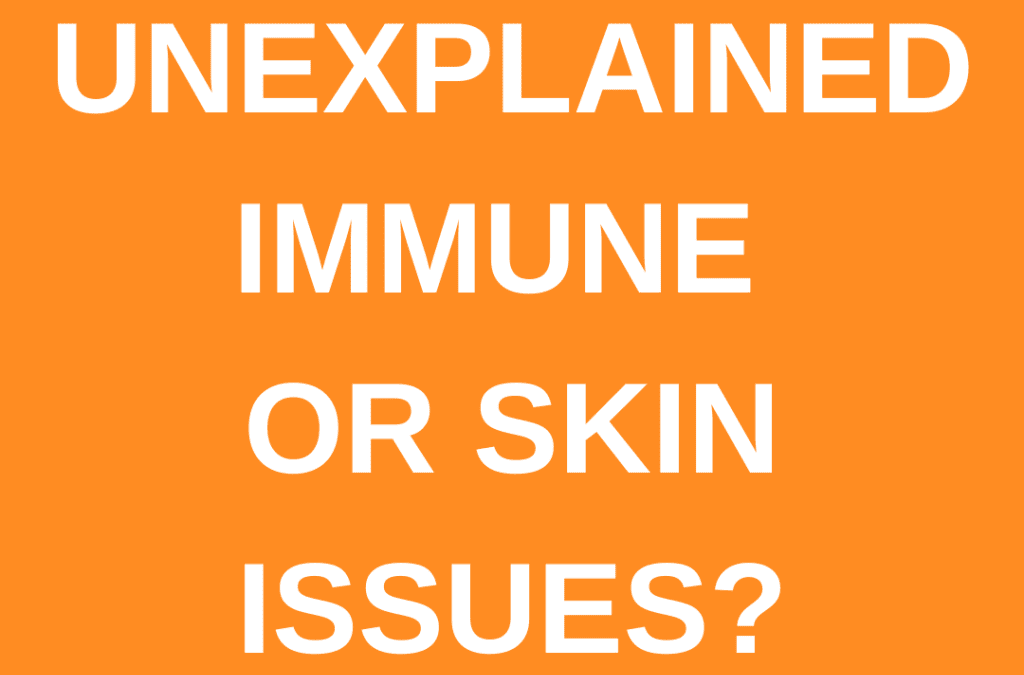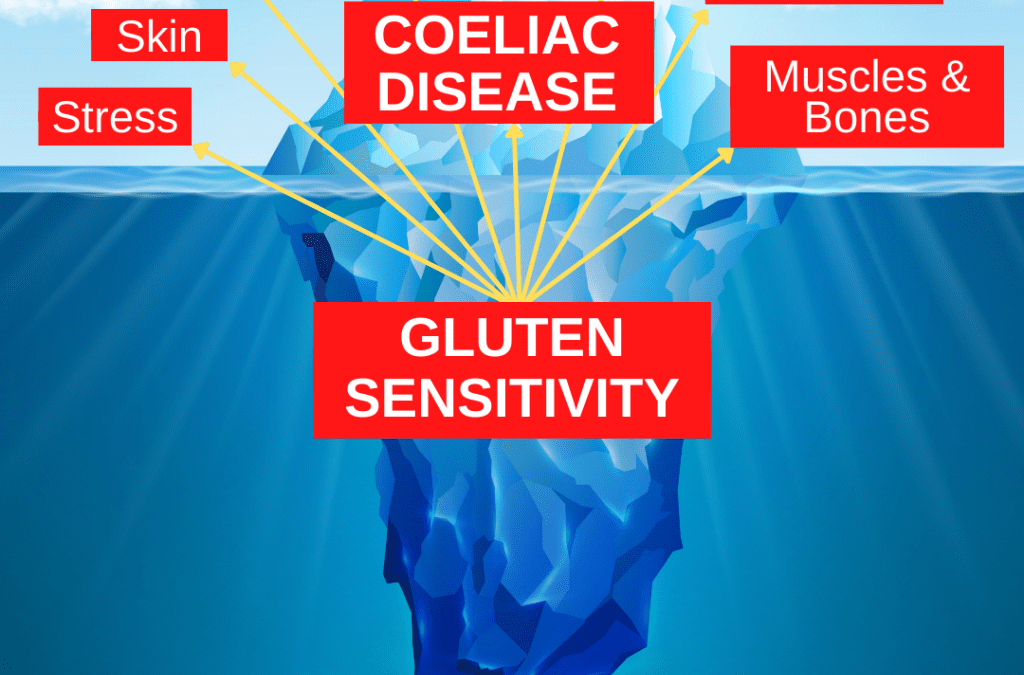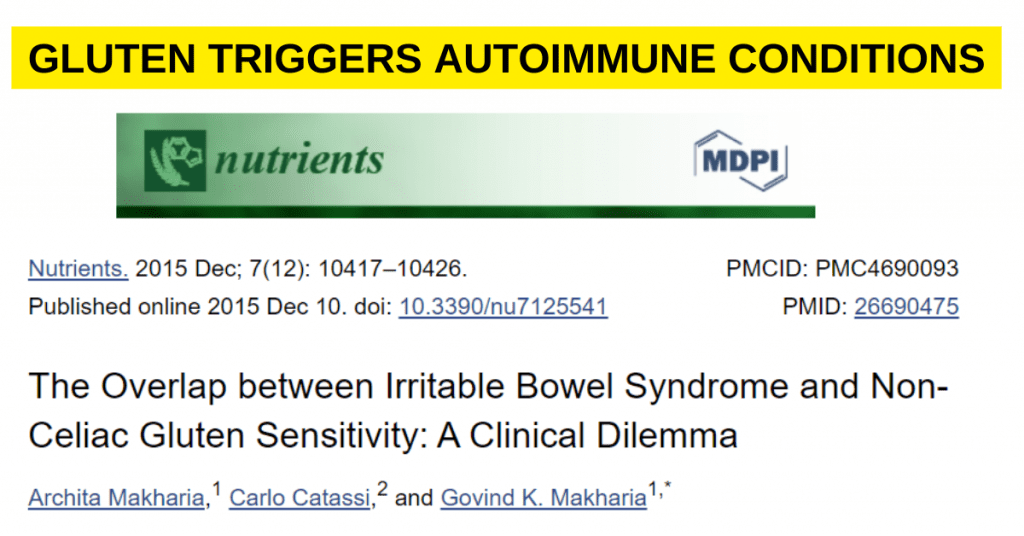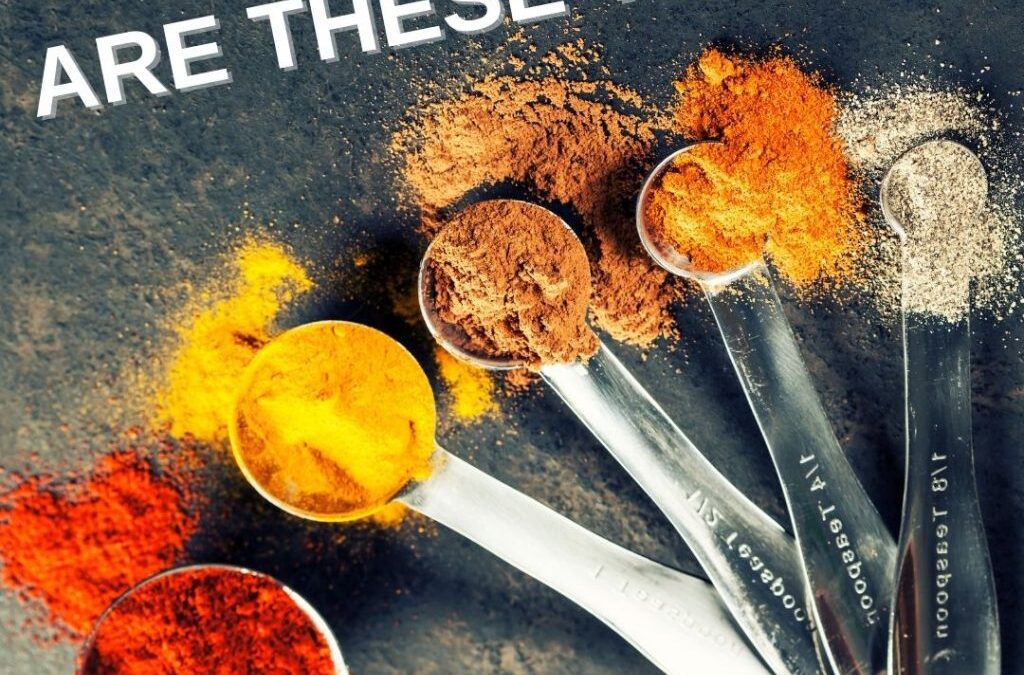
Jun 21, 2022 | Knowledge Base

Autoimmunity includes conditions as diverse as psoriasis, Crohns, ulcerative colitis, hypothyroidism and vasculitis.
Know the best way to keep your autoimmune condition going? Or to set up an autoimmune condition? Eat gluten. Often. Yes, even in non-coeliacs and people who are NOT sensitive to gluten at all, regular consumption of gluten is a risk factor. Numerous peer-reviewed studies published in prestigious scientific journals confirm this finding. And yet it is little known.
Part of the reason gluten can trigger autoimmunity is that it damages YOUR gut. You must have a damaged gut in order to have an autoimmune condition.
And yet this isn’t common knowledge. Why? In my opinion, there are three reasons:
- On average it takes the latest, proven scientific findings 25 years to percolate into medical practice
- Medical schools teach only half-day nutrition during a student’s 6 years of study.
- Medical schools do not include modules on how to critically assess scientific research.
Rakhimova, Esslinger et al. In vitro differentiation of human monocytes into dendritic cells by a peptic-tryptic digest of gliadin is independent of genetic predisposition and the presence of celiac disease. J Clin Immunol 2009 Jan;29(1):29-37.
Read the study here.
Need help? Book your FREE quarter-hour call.
Phone + 353 87 981666 or email anna@annacollins.ie NOW.

Jun 14, 2022 | Knowledge Base

Sensitive to gluten or not, this common protein damages you. This groundbreaking 2015 study was done on normal healthy people as well as people with gluten sensitivity.
EVERYBODY, not just the gluten-sensitive folk, experienced damage to their gut lining. If your gut lining is damaged it opens the door to all chronic health conditions.
Hollon et al. Effect of gliadin on permeability of intestinal biopsy explants from celiac disease patients and patients with non-celiac gluten sensitivity. Nutrients 2015, 7, 1565-1576.
Need help? Book your FREE quarter-hour call.
Phone + 353 87 981666 or email anna@annacollins.ie NOW.

Jun 7, 2022 | Knowledge Base

You just might be coeliac. For every patient with digestive symptoms, there are 8 patients with coeliac disease and NO gastrointestinal symptoms according to research published in the Journal of Gastroenterology. Coeliac disease dramatically increases your risk of autoimmune hepatitis, hypothyroidism, psoriasis, Sjogren’s, arthritis, and other autoimmune disorders. As well as a constellation of inexplicable ailments.
The number one symptom of coeliac disease is fatigue, with cognitive issues coming a close second. That was certainly the case in my situation. In order for your standard GP blood tests to show anything, you have to have reached the end stage of coeliac disease, where there is severe destruction in your small intestine. But if your immune system is struggling, you may still get a negative blood test even if the damage is severe. Biopsy only shows coeliac disease when it is end-stage. There ARE better ways to get answers. If you want to have a conversation, get in touch.
Fasano and Catassi. Current approaches to diagnosis and treatment of celiac disease: an evolving spectrum. Gastroenterology. 2001 Feb;120(3):636-51.
Need help? Book your FREE quarter-hour call.
Phone + 353 87 981666 or email anna@annacollins.ie NOW.

May 31, 2022 | Knowledge Base

You CAN find out with the latest tests and techniques.
Need some information? Call 087 9816666 or email anna@annacollins.ie to book your FREE quarter-hour chat.

May 24, 2022 | Knowledge Base
A clinical trial with IBS patients showed that implementing a gluten-free diet for 12 weeks resulted in significant improvement in symptoms.
Might YOU be gluten-sensitive and not know it? Find out the latest techniques and tests.
Makharia et al. The Overlap between Irritable Bowel Syndrome and Non-Celiac Gluten Sensitivity: A Clinical Dilemma. Nutrients. 2015 Dec; 7(12): 10417–10426.
Read the study here.
Need help? Book your FREE quarter hour call.
Phone + 353 87 981666 or email anna@annacollins.ie NOW.

May 17, 2022 | Knowledge Base
Non-coeliac gluten sensitivity is on the rise. This is where your immune system over-reacts to a class of proteins collectively called gluten and causes symptoms anywhere in your body.
But is implementing a gluten-free diet really the best thing? Yes and No. If you replace your previously brown bread with a gluten-free sliced pan you may feel better for a little while. But what happens next?
- You’ve now lost an important source of fibre. Fibre that fed bacteria critical for digestive health as well as the health of your immune system, your brain, your skin, and more.
- You’re now eating more chemical emulsifiers like carboxymethylcellulose added to free-from foods to improve texture. These emulsifiers cause damage to your gut. This damage affects every system in your body.
- You are now eating more ultra-processed grains and sugars like cornflour, dextrose, and modified starches. These feed pro-inflammatory and disease-causing bacteria in your gut.
- Over time you may develop new, additional food sensitivities because the underlying causes of your initial sensitivity have not been resolved.
Sometimes the underlying causes of food sensitivity are very simple. With the right knowledge, you can learn to support your body’s journey back to magnificent health.
Need help? Book your FREE quarter-hour call.
Phone + 353 87 981666 or email anna@annacollins.ie NOW.

May 10, 2022 | Knowledge Base

Plants contain biological toxins called polyphenols or bioflavonoids. Polyphenols are natural substances in fruit, vegetable herbs, and spices. Polyphenols help the plant deter infections (bacteria, viruses, moulds) and deter predators (insects, animals, and us!). Many plants with high polyphenol content have strong flavours that insects don’t like.
Examples of polyphenols include quercetin in apple skins and red onions, curcumin in turmeric, gingerol in ginger, and carotenoids in red/orange fruit and vegetables.
When you eat polyphenols they stimulate your body to strengthen its own defences and upregulate healing activities. A polyphenol-rich eating style helps calm and heal your whole gut. This is critically important if you want to get to grips with any digestive, skin, or immune issues including food sensitivities. Amazingly, many spices people with gut issues are afraid to eat are supremely anti-inflammatory and healing!
Need help? Book your FREE quarter-hour call.
Phone + 353 87 981666 or email anna@annacollins.ie NOW.

May 3, 2022 | Knowledge Base

- Autoimmune conditions e.g. psoriasis, hypothyroidism, ulcerative colitis, Crohn’s
- Digestive issues
- Food sensitivities or allergies
If your vitamin D is below 100 nmol/L you don’t have enough.
More common signs can include back pain, fatigue, low mood, infections more than once a year, excessive sweating, dry skin, mood issues, high blood pressure, and joint pain.
Need help? Book your FREE quarter-hour call.
Phone + 353 87 981666 or email anna@annacollins.ie NOW.

Apr 26, 2022 | Knowledge Base
Did you know that some common foods damage and inflame your gut, prolonging your struggles with IBS?
- Refined products. These are “are food artifacts”. That is they’re not really food at all, only calories. Let’s take sugar. It comes from sugar cane which in nature contains nutrients like chromium and B vitamins. These nutrients helped the body cope with the natural sugars in there. Take sugar cane to the factory, get rid of the fibre and nutrients and you’re left with table sugar. White or brown it’s still depleted in nutrients. Your body has to draw nutrients away from other important functions to metabolise the sugar. Functions like keeping your mind calm (B vitamins and magnesium), or bowel healthy (folate, zinc, selenium, vitamin C) may suffer. Refined prsoducts feed pro-inflammatory bacteria in your gut. Refined foods include most wheat, pasta and sweet products as well as ready meals and things in packets with long lists of ingredients.
- Gluten. Gluten is a collection of proteins found in grains like wheat, spelt, rye and barley. Humans can’t properly digest gluten so traditional ways of preparing grains like wheat evolved. Sourdough fermentation removes over 99% of the gluten from grains. This is why many people notice sourdough bread is easier on their system than yeast or soda bread. I ask all patients with digestive issues to lighten the gluten load by doing some very simple swaps in how they shop. Beware though, many “gluten-free” products are highly refined and can make matters worse!
- Low-calorie or sugar-free products. These will often contain aspartame, saccharin, or sucralose. These chemicals alter your gut bacteria in favour of the “bad guys” that inflame you and prevent normal digestion.
It’s amazing how even a few simple changes can impact how you feel…
Book your FREE quarter-hour discovery call by phoning + 353 87 981666 NOW or emailing anna@annacollins.ie

Apr 19, 2022 | Knowledge Base
Colitis and Crohn’s and other autoimmune conditions often run in families, right? You might be condemned to suffer these if you have a family history, right? WRONG!!
We, humans, have around 23,000 genes. Genes are essentially units of information and are made of DNA. We have 2 copies of each gene, one inherited from each parent. Genes instruct your body to make proteins. Proteins tell your body to do everything that ever happens in your body.
Out of all your genes, on average around 1000 are abnormal. Some of these abnormalities give you an advantage. You might be less predisposed to joint injury. Or be able to tolerate higher amounts of carbohydrates in your diet without becoming overweight or diabetic. Or a genetic abnormality might put you at a disadvantage. You might need more vitamin D than the next guy to avoid bowel disease, digestive disorders or psoriasis.
While there are genes that you can’t modify – like those for eye colour – the genes that govern health and disease can be modified. Gene behaviour is altered by its environment. You internal environment is governed by the food you eat, when you eat it, whether you exercise, the thoughts you think and subconscious factors that CAN be reprogrammed. That means you can support your genes to move you towards better health. Whether a gene “switches on” or stays inactive is governed by how you choose to eat, breathe, think and behave. For me, knowing I had an abnormal vitamin D receptor gene meant power to reverse (without meds) the osteoporosis diagnosis I got at age 47. You have more power than you know.
Book your FREE quarter hour discovery call NOW by phoning + 353 87 981666 or email anna@annacollins.ie















